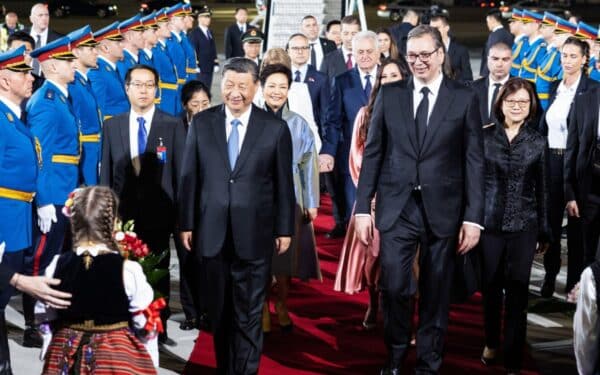This has been a very important COP. Yes, it’s still the morning after the night before so the hot takes are piping hot and the unravelling of the agreement as each delegation tells the world what they think the text means is yet to start. But this has been a very important COP.
The BBC headline has it right: “COP28 deals calls for global transition away from fossil fuels for the first time.” Make no mistake: this is a big move and a big change. Of course, as was made clear to the delegates, fine words butter no parsnips – it’s all down to implementation. But this is a fundamental shift and one that could only have happened at a COP located in a petro-state – perhaps, because they were planning to make such concessions all along?
Who knows if the stoush around the weak language around fossil fuels over the weekend was a set-up (and, to be clear, I think there’s little doubt that it was) that allowed the UAE and the much put-upon COP President, Sultan Al Jaber, to show just how tough they could be in negotiations with the Saudis and their Gulf allies? What matters is the outcome, and the outcome is a very firm foundation that future COPs will build on. It’s not hyperbole to say that this is the biggest step forward that the world has taken at COP since Paris because what many western-based observers fail to realise is how far ahead countries like the UK are, both psychologically and in terms of infrastructure, on the realities of climate change and what’s required over the next 25 years.
The NGOs and others will bemoan the fact that the phrase “phase out” was not used about fossil fuels. They’ll say that the use of “calls upon” when asking countries to look at their fossil fuel use isn’t enough but they should look at the principle of a loss and damage fund that was agreed at COP27 last year and then look at what’s been achieved and committed to this year. As a result, there can be little doubt that future COPs will agree to phase out fossil fuels, perhaps even as soon as next year. However, the NGOs are right to say that today’s agreement is not perfect and it’s no use pretending that it is. John Silk from the Marshall Islands said: “ I came from my home in the islands to work with you all to solve the greatest challenge of our generation. I came here to build a canoe together for my country…Instead we have built a canoe with a weak and leaky hull, full of holes. Yet, we have to put it into the water because we have no other option.” But, as Silk will know, COPs are all about compromise: there’s no other way to get 200 countries to agree to a single text which means no one will ever be entirely satisfied.
But it’s clear that the petro-states in the Middle East are relaxed about the language around fossil fuels. So why is it that they’ve made concessions that they’re entirely happy to make? You only have to look at what the Saudis are building at Neom, in north-eastern Saudi Arabia, to realise that their plans for a post-oil economy are well underway. At the same time, they know all too well that, as was said somewhere else recently in a totally different context, that the end of the oil industry is “a little cloud no bigger than a man’s hand” today so their days of earning mega-bucks from oil are a very long way from being over. This speaks to a pragmatism that should have been obvious to everyone from the start: why would the UAE – surely with the acquiescence of their neighbours – agree to host a COP, with all the obvious brickbats that would come with it, if they weren’t committed to making a fundamental change and one that would be remembered?
For all his faults, so expertly teased out over the past weeks by many observers, Sultan Al Jaber will now be honoured as the COP President that got the transition away from fossil fuels agreed for the first time. There are very few observers that would have predicted that when he was appointed but really, they should have done.




